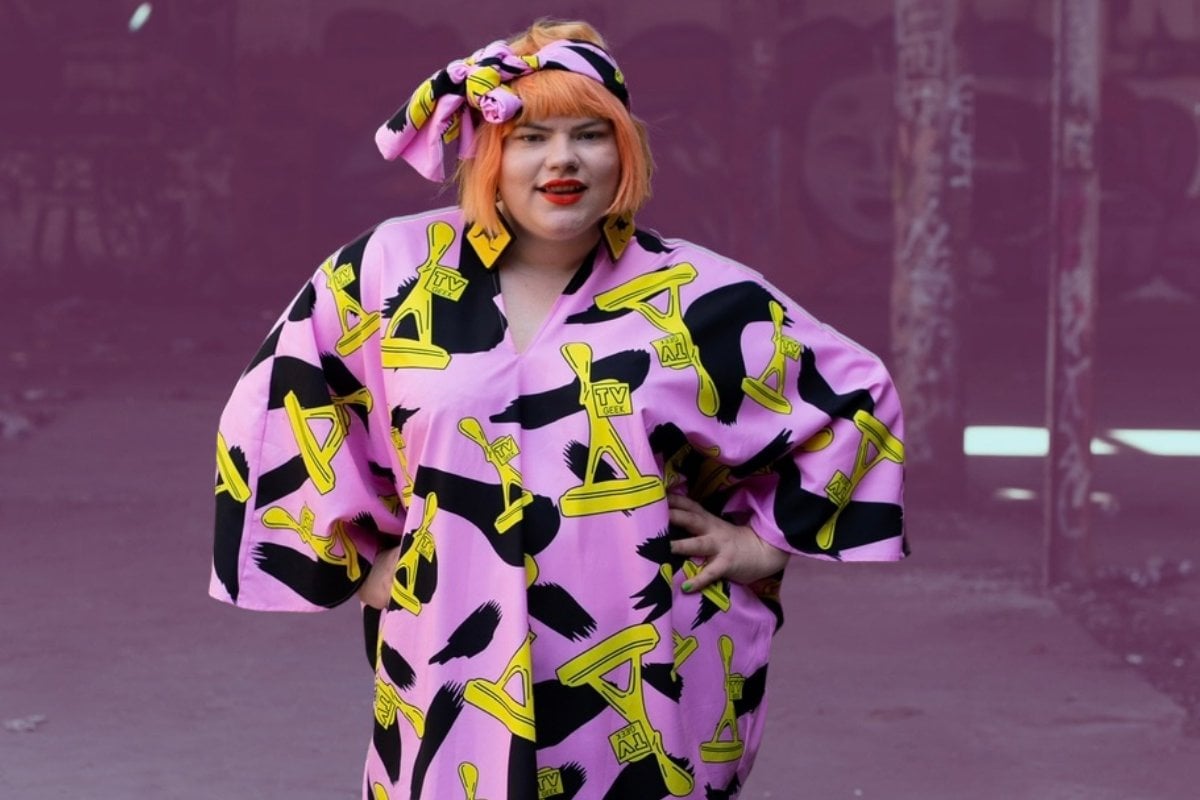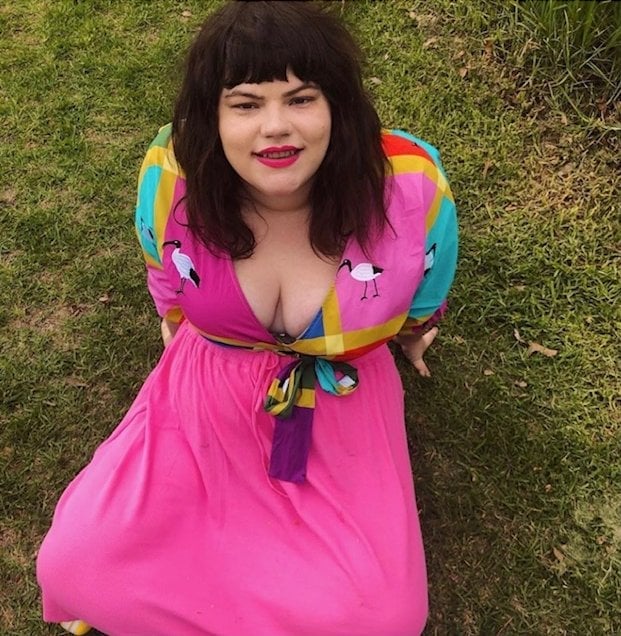
I am a happy fat girl. I have good friends, a job I enjoy, a lovely partner and in general, minus a few bad days, I feel good in my own skin, even sexy.
I go drinking, dancing, eating, dating, shopping and my life is good, full and fun. (Well, when we aren't in lockdowns.)
However, whenever I turn on a television show or a movie and a woman on the screen is my size or bigger, I don't see my life reflected back at me. Instead, I am greeted with the 'Sad Fat Girl' character.
Watch: How to improve your daughter's body image. Post continues below.
It's a reminder that the mainstream media believes that if you are plus-size, you are not a leading lady or, at best, you are not a happy leading lady. Instead you are actually just very, very sad.
The 'Sad Fat Girl' is a character we all know. Think Jenny Gross in Winners & Losers, Penelope Featherington in Bridgerton, Alma Fillcot in Women Who Kill and even Annie Easton in Shrill.
These characters are all different versions of the 'Sad Fat Girl' because they all have one thing in common - their weight somehow dictates everything about them, from their romantic choices, to how they feel about themselves, to their popularity.


Top Comments